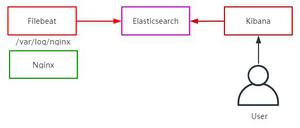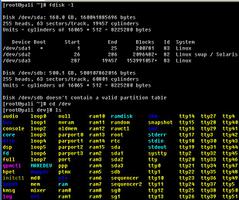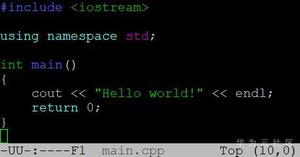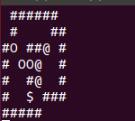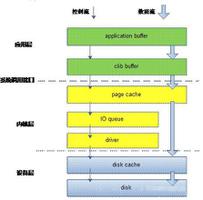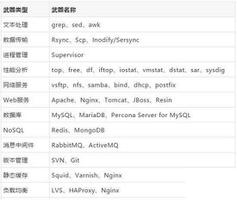linux下C语言实现写日志功能
先上程序,该程序经过测试能够很好的实现写日志要求
/*************************************************************************
> File Name: log.c
> Author:
************************************************************************/
#include <stdio.h>
#include <sys/types.h>
#include <unistd.h>
#include <stdlib.h>
#include <string.h>
#include <errno.h>
#include <stdarg.h>
#include <time.h>
#include <pthread.h>
int safe_asprintf(char **strp, const char *fmt, ...);
int safe_vasprintf(char **strp, const char *fmt, va_list ap);
void plog(const char *format, ...) ;
void pinfo(const char *format, ...) ;
#define DEBUG
#ifdef DEBUG
void plog(const char *format, ...);
void pinfo(const char *format, ...);
#define debug(fmt, args...) plog(fmt, ##args)
#else
#define debug(fmt, args...) do{}while(0)
#endif
static pthread_mutex_t fileMutex = PTHREAD_MUTEX_INITIALIZER;
int main(int argc, char *argv)
{
return 0;
}
/*
* safe_asprintf();
*/
int safe_asprintf(char **strp, const char *fmt, ...)
{
va_list ap;
int retval;
va_start(ap, fmt);
retval = safe_vasprintf(strp, fmt, ap);
va_end(ap);
return retval;
}
/*
* safe_vasprintf();
*/
int safe_vasprintf(char **strp, const char *fmt, va_list ap)
{
int retval;
retval = vasprintf(strp, fmt, ap);
if (retval == -1)
{
printf("Failed to vasprintf: %s. Bailing out\n", strerror(errno));
return 1;
}
return retval;
}
/*
* plog();
*/
void plog(const char *format, ...)
{
pthread_mutex_lock(&fileMutex);
FILE *fp = NULL;
va_list vlist;
char *fmt = NULL;
// Open debug info output file.
if (!(fp = fopen("log.txt", "a+"))) {
pthread_mutex_unlock(&fileMutex);
return;
}
va_start(vlist, format);
safe_vasprintf(&fmt, format, vlist);
va_end(vlist);
if (!fmt) {
pthread_mutex_unlock(&fileMutex);
return;
}
time_t timep;
struct tm *ptm = NULL;
time(&timep);
ptm = localtime(&timep);
fprintf(fp, "[%04d-%02d-%02d-%02d-%02d-%02d] %s",
ptm->tm_year + 1900,
ptm->tm_mon + 1,
ptm->tm_mday,
ptm->tm_hour,
ptm->tm_min,
ptm->tm_sec,
fmt);
free(fmt);
fsync(fileno(fp));
fclose(fp);
pthread_mutex_unlock(&fileMutex);
}
/*
* pinfo();
*/
void pinfo(const char *format, ...)
{
pthread_mutex_lock(&fileMutex);
FILE *fp = NULL;
va_list vlist;
char *fmt = NULL;
// Open debug info output file.
if (!(fp = fopen("log.txt", "a+"))) {
pthread_mutex_unlock(&fileMutex);
return;
}
va_start(vlist, format);
safe_vasprintf(&fmt, format, vlist);
va_end(vlist);
if (!fmt) {
pthread_mutex_unlock(&fileMutex);
return;
}
fprintf(fp, "%s", fmt);
free(fmt);
fsync(fileno(fp));
fclose(fp);
pthread_mutex_unlock(&fileMutex);
}
程序实现的日志格式为:
时间 + 空格 + 具体实现(自己的调试内容)
本段程序值得学习的地方:
- va_list 结构体的使用
- linux 的格式化输出字符串
- 文件操作过程中pthread_mutex锁的使用,以及他的优点
- linux DEBUG 的应用,方便调试
linux如何查看日志:
使用tail 命令可以实现日志的查询,以及其他功能,不了解的话,自行查资料解决。
对上面应用不明白的请自行查资料解决。
以上是 linux下C语言实现写日志功能 的全部内容, 来源链接: utcz.com/z/359298.html

